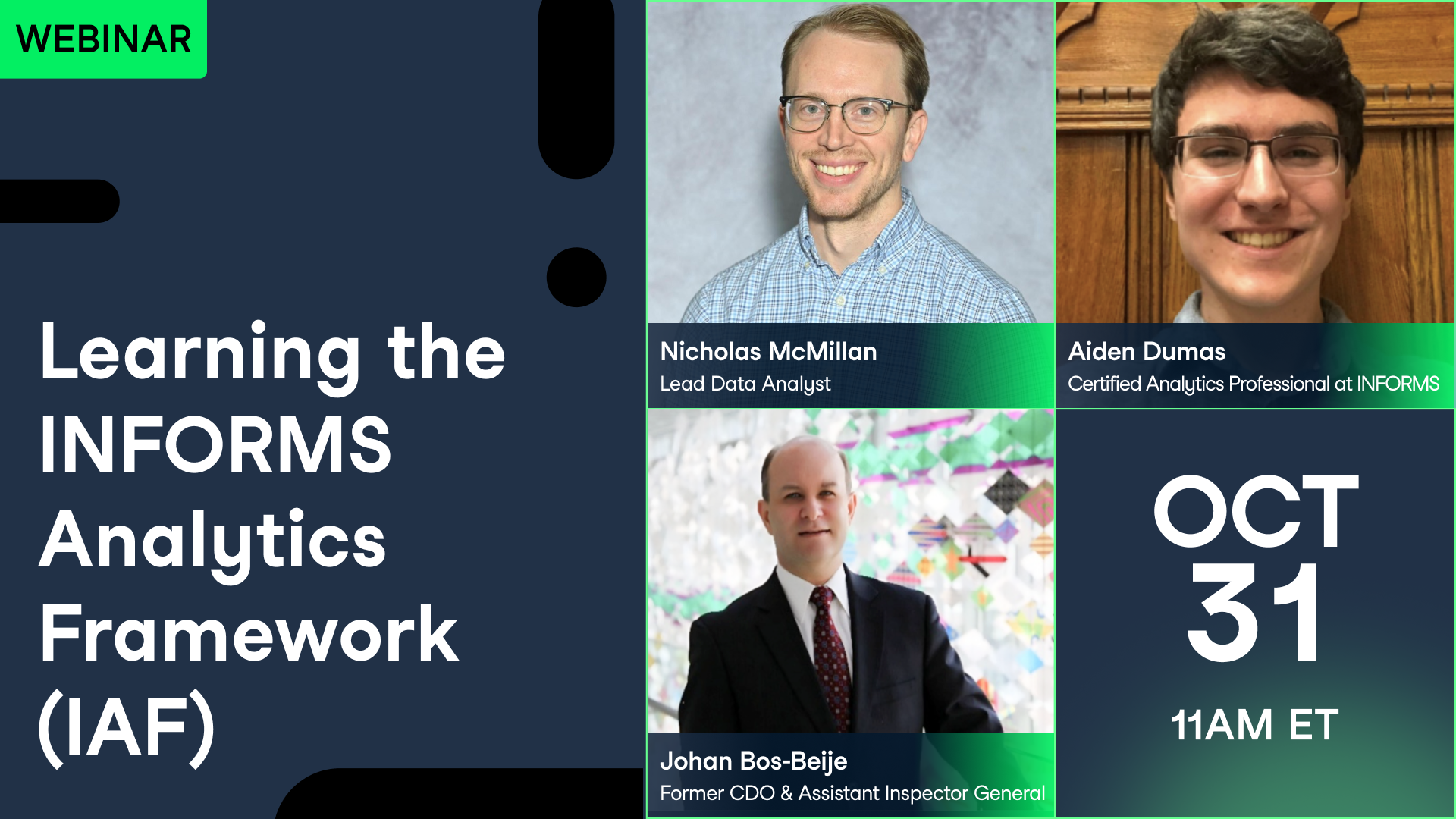Palestrantes
Treinar 2 ou mais pessoas?
Dê acesso à sua equipe à biblioteca completa do DataCamp, com relatórios centralizados, tarefas, projetos e muito mais.Learning the INFORMS Analytics Framework (IAF): The Proven Guide to Developing Analytics Solutions
October 2025
Relacionado
infographic
Your Organization's Guide to Data Maturity
Learn about the levers of data transformation in this handy infographicwebinar
A Framework for Data Transformation
Learn how to systematically transform your organization into a data-driven onewebinar
Scaling Data & AI Literacy with a Persona-Driven Framework
In this session, three experts walk you through the steps of creating a successful data training program.webinar
Scaling Data & AI Literacy with a Persona-Driven Framework
In this session, three experts walk you through the steps of creating a successful data training program.webinar
Make the most of your organization’s data with business intelligence
Learn how to scale data insights in your organization with business intelligencewebinar


